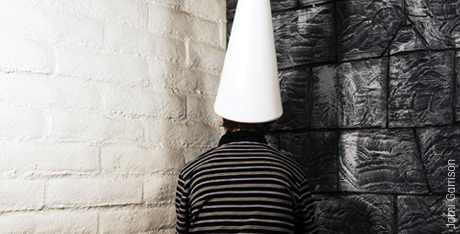All of us, at some point in our lives, vow to remain forever young. It’s that white hot moment of recognition when we realize people in T-shirts and jeans seemingly enjoy a wider grin level than people in pressed Dockers slacks and collared knit shirts.
For me the recognition came early. In high school, when asked what we wanted to be when we grew up, my classmates would parrot “a lawyer, a doctor, an astronaut.” Preferring genuine over clichéd, I’d earnestly answer, “To be relevant.”
The nuns would then accuse me of being “some kind of comedian” and whack me across the spine with a yellow yardstick. I’d then be told to stand in the corner where I’d stare at the wall wondering why nuns, or most people of authority, always used the modifier “some kind of ” as a way of derision. It was always “some kind of comedian” or “some kind of wise guy.” Straight A students were never asked, “Are you some kind of genius?” They were directly told, “You’re smart.”
The nuns would then accuse me of being “some kind of comedian” and whack me across the spine with a yellow yardstick.
Regardless, I equated remaining forever young as a sound and honest pursuit. Not in a superficial Joan Rivers type way (whose facial skin looks so taut it can shun bullets), but as a way of remaining relevant and apt. For as I saw it, irrelevancy incites bitterness, which ultimately leads to life’s foulest fate: angry old person.
Proof of this is everywhere. Irritable gray-haired golf starters. Bored retirees turned scowling crossing guards. My uncle Larry after two Old Fashioneds.
No, not me, I vowed. I’m too aware of irrelevancy’s underhandedness to fall prey. And besides, this only happens to others. The key, I believed, was to embrace change, remain vigilantly curious, and avoid the when-I-was-your-age comparisons with the younger generation.
So I did. Societal relevancy followed me through life’s first half. I knew 4/20 from ABC’s 20/20, Mother Jones from Mother Teresa, Richard Bach from Sebastian Bach, P.J. O’Rourke from Robert Bork, Cher’s Bono from U2’s Bono, Twiggy from Ziggy, Sting from Bing, and Belushi from sushi.
Then it happened. As I neared 45, the first gray hair of societal irrelevancy appeared.
Then it happened. As I neared 45, the first gray hair of societal irrelevancy appeared. For the first time in my life I began walking past newspaper boxes holding alternative weeklies. These free newspapers had always been a must-read, favored for their youthful hubris. But, suddenly, I could no longer relate. It seemed as if the articles and ads catered exclusively to a strange, new demographic: people with pierced-face accessories.
Then another gray hair appeared. Instead of paging through the Sunday newspaper for concert listings and movie reviews, I was more interested in checking the Home Depot insert for discounts on garden hoses and lighting fixtures.
My slow free fall from relevancy turned into a full-out plummet. Rousing discourse about books and politics was displaced by mopey tales of lower back pain, cholesterol and dry skin.
Old concert T-shirts lost their coolness factor. The words “Grateful Dead” became another spelling for AARP.
My prized record collection of more than 700 albums no longer elicited admiration, only derision. Like the rings of an oak tree, people saw it as a reflection of age, reducing my record collection to the home décor version of a receding hairline.
I didn’t want to try to behave young.
Inevitably, by the time I turned 50 the first stages of angry old person began to manifest. I referred to People magazine as People I Don’t Know magazine, Us Weekly as Them Weekly, and Rolling Stone as Rolling Rubbish.
Like it or not I had become some kind of angry old guy. I felt as irrelevant as a 20-items-or-less checkout line in Costco.
Rather than continue with hiss and lament, I embraced the self-recognition. Resisting, I realized, would only deepen the resentment rut. The question was how to ease back into society’s flow.
How indeed?
I didn’t want to try to behave young. After all, there are double standards in life that are stacked against the over-something crowd. Drunk at 22 makes you the life of the party. Drunk at 54 makes you the source of a family intervention.
I could become more engaged on Facebook, suddenly liking everyone’s posted cat photos. But that would come across as phony; the cyber version of a comb-over.
No, the answer I decided was to simply accept. Don’t try to be someone you’re not. So what if your tastes are dated? The Smithsonian is just as popular as the Museum of Modern Art.
The key, as we age, is not to strive for relevancy, but for authenticity. To comprehend this we must understand that we don’t become authentic by being relevant. We become relevant by being authentic. Look at master bluesman John Lee Hooker for towering proof. He wasn’t some kind of guitar player or some kind of musician. He was himself.



